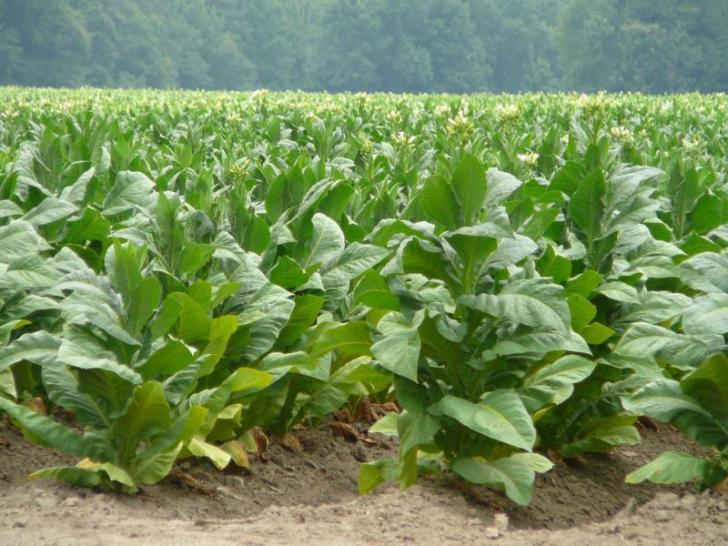News / National
Zimbabwe tobacco farmers demand indigenous tobacco policy
3 hrs ago | Views

The government has been urged to develop an indigenous tobacco policy aimed at promoting production and supporting farmers who form the backbone of Zimbabwe's golden leaf sector.
Speaking at a recent conference in Harare, Zimbabwe Progressive Tobacco Growers Association (ZPTGA) president Mtandwa Mutasa highlighted the marginalisation of indigenous farmers and companies within the tobacco value chain.
The association, which represents small-scale tobacco growers and emerging indigenous firms, voiced concern over the dominance of foreigners in key roles such as marketing and finance.
"This practice limits the transfer and acquisition of essential industry knowledge by indigenous professionals. We advocate for deliberate inclusion of indigenous personnel in strategic positions to build local expertise and capacity," Mutasa said.
He welcomed the ongoing revision of the tobacco policy, hoping it will address longstanding imbalances caused by colonial-era laws that have disadvantaged indigenous stakeholders.
"We are hopeful the new policy will safeguard the interests of indigenous tobacco players and promote equitable participation," he added.
Mutasa also called for amendments to the Tobacco Industry Act to formally include indigenous players as equal stakeholders. The Tobacco Industry Marketing Board (TIMB) has invited public input on the law's revision.
He urged government support for small-scale farmers - who contribute over 80% of national tobacco output - including production and buyback guarantees, and dedicated funding to help them compete with larger, established entities.
In his opening remarks, TIMB CEO Emmanuel Matsvaire highlighted Zimbabwe's position as the world's fifth largest tobacco producer, thanks to over 140,000 active farmers and resilient value chain participants.
"Tobacco contributes over US$1 billion annually to our economy, making it a flagship sector and key driver of rural livelihoods," Matsvaire said.
He acknowledged progress in value addition, which rose to 10.15% in 2024 from 8.8% in 2023, but noted the country's nine manufacturing factories operate well below capacity - producing only four billion sticks out of a 17 billion stick annual potential.
"This is a call to action to increase capacity utilisation. Our focus is not only on producing the golden leaf but extracting full value from it," Matsvaire added.
Zimbabwe stands out as the only African nation with a nicotine extraction plant and opportunities for sustainable waste disposal and converting tobacco residue into organic fertiliser, positioning it as a potential regional fertiliser hub.
"I encourage all stakeholders to collaborate, innovate, and invest to turn our golden leaf into golden opportunities for Zimbabwe," he concluded.
Speaking at a recent conference in Harare, Zimbabwe Progressive Tobacco Growers Association (ZPTGA) president Mtandwa Mutasa highlighted the marginalisation of indigenous farmers and companies within the tobacco value chain.
The association, which represents small-scale tobacco growers and emerging indigenous firms, voiced concern over the dominance of foreigners in key roles such as marketing and finance.
"This practice limits the transfer and acquisition of essential industry knowledge by indigenous professionals. We advocate for deliberate inclusion of indigenous personnel in strategic positions to build local expertise and capacity," Mutasa said.
He welcomed the ongoing revision of the tobacco policy, hoping it will address longstanding imbalances caused by colonial-era laws that have disadvantaged indigenous stakeholders.
"We are hopeful the new policy will safeguard the interests of indigenous tobacco players and promote equitable participation," he added.
Mutasa also called for amendments to the Tobacco Industry Act to formally include indigenous players as equal stakeholders. The Tobacco Industry Marketing Board (TIMB) has invited public input on the law's revision.
He urged government support for small-scale farmers - who contribute over 80% of national tobacco output - including production and buyback guarantees, and dedicated funding to help them compete with larger, established entities.
In his opening remarks, TIMB CEO Emmanuel Matsvaire highlighted Zimbabwe's position as the world's fifth largest tobacco producer, thanks to over 140,000 active farmers and resilient value chain participants.
"Tobacco contributes over US$1 billion annually to our economy, making it a flagship sector and key driver of rural livelihoods," Matsvaire said.
He acknowledged progress in value addition, which rose to 10.15% in 2024 from 8.8% in 2023, but noted the country's nine manufacturing factories operate well below capacity - producing only four billion sticks out of a 17 billion stick annual potential.
"This is a call to action to increase capacity utilisation. Our focus is not only on producing the golden leaf but extracting full value from it," Matsvaire added.
Zimbabwe stands out as the only African nation with a nicotine extraction plant and opportunities for sustainable waste disposal and converting tobacco residue into organic fertiliser, positioning it as a potential regional fertiliser hub.
"I encourage all stakeholders to collaborate, innovate, and invest to turn our golden leaf into golden opportunities for Zimbabwe," he concluded.
Source - Newsday



































